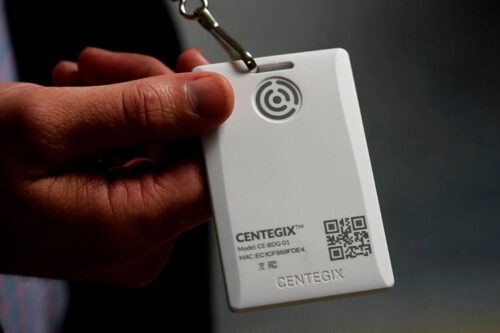
2.13.23 – Democrat Herald – GARY A. WARNER Oregon Capital Bureau
A new bill would require Oregon schools to equip each building with a silent “panic button” alarm system that incorporates cell and landline phones at schools.
A hearing for House Bill 3101 was held Monday, Feb. 13 in the House Committee on Education.
It would require a button in each public and private K-12 school building which would send an alarm to law enforcement, fire and rescue agencies. Similar systems are already used in schools, businesses and institutions around the nation.
Similar systems in public schools in Florida, New York and New Jersey can alert authorities to incidents ranging from armed intruders to medical emergencies. It can also be used for two-way communication to help first responders know the latest information about where and how to help when they arrive.
Rep. Emerson Levy, D-Bend, and Rep. Ben Bowman, D-Tigard, are the chief sponsors of the Oregon bill, with Rep. Paul Evans, D-Monmouth, supporting.
“This is an important tool in our toolbox to ensure student safety,” Levy testified.
Levy said that in states with similar laws, 80% of the alerts were for “everyday emergencies like seizures, allergic reactions and heart problems.”
The bill would need to come up for a work session in which the House Education Committee would vote on amendments and whether to send the legislation to the full House.
The work session would be scheduled by the committee chair, Rep. Courtney Neron, D-Wilsonville. A date for the work session must be announced by March 17 for the bill to remain under consideration for the current legislative session.
The legislation is known as “Alyssa’s Law” after Alyssa Alhadeff, a victim of the February 2018 mass shooting at Marjorie Stoneman Douglas High School in Parkland, Florida. Nikolas Cruz, a recent drop-out from the school, used a semi-automatic assault rifle to kill 14 students and three staff. Another 17 people were wounded. Cruz is serving 34 consecutive life sentences without possibility of parole.
Tuesday, Feb. 14 will be the fifth anniversary of the shooting. The committee heard remote testimony from Lori Alhadeff, Alyssa’s mother, who after the shooting has campaigned for better and quicker communication for emergency situations in schools. She is currently also chair of the Broward County School Board.
Alhadeff said communication delays with local law enforcement extended the timeline of the shooting that took her daughter’s life.
“Alyssa was in her English classroom and was shot eight times,” Alhadeff said.
The mobile panic button system would ensure that “help will be on the scene as soon as possible.”
The Oregon bill was introduced when the Legislature convened in January and was assigned to the House Education Committee. It moved up on lawmakers’ agenda following last Thursday’s threat violence at Bend High School. Emergency dispatchers received an anonymous call from a man who said he was in the Bend High School parking lot, was armed, and planned to go into the school.
As a precaution, all high schools in the Bend-La Pine Schools district were placed into “secure” status, with no one allowed in or out of the schools. Police arrived at the high school in what they reported was within three minutes of the call. After an extensive search, no potential shooter was found. It was later reported by authorities that the call came from outside the United States.
At Monday’s hearing, Levy testified that in addition to the “worst-case scenario” of a school shooting, the system would also speed assistance for other emergencies such as accidents, seizures or serious injuries during sports events.
The system does not activate normal school bells and loudspeaker systems, which might alert an assailant that authorities had been alerted to their presence.
Levy said an amendment would be introduced to “carve out” exemptions for some rural and smaller schools where the system would not be practical.
Twelve of the 14 pieces of written testimony submitted to the committee came from Bend and Redmond in Deschutes County.
The bill is similar to model legislation approved in Florida, New York and New Jersey. Versions are pending in several other states, as well as a proposed federal regulation now before Congress.
